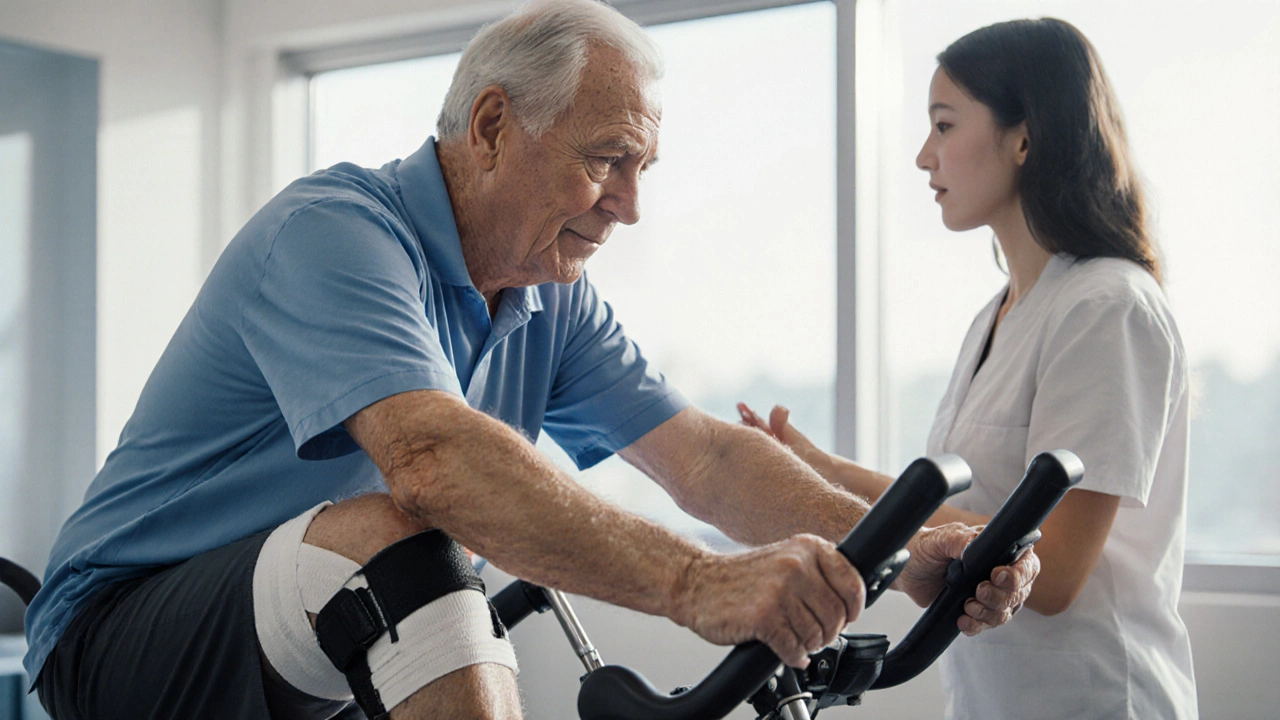Knee Replacement Stiffness: Causes, Fixes, and What to Expect
When you have a knee replacement, a surgical procedure where damaged knee joint parts are replaced with artificial components. Also known as total knee arthroplasty, it’s meant to restore movement and cut pain—but for many, stiffness sets in instead. This isn’t just normal soreness. It’s a locked-up joint that won’t bend, making walking, climbing stairs, or even sitting comfortably a struggle. If your knee feels stiff weeks or months after surgery, you’re not alone—and you don’t have to accept it.
Knee replacement stiffness, a condition where the joint loses its full range of motion after surgery. Also known as frozen knee, it often happens when scar tissue builds up, muscles weaken, or physical therapy isn’t done right. It’s not caused by the implant itself, but by what happens around it. Studies show up to 1 in 5 patients report persistent stiffness after surgery, especially if they skip rehab or return to activity too fast. The good news? Most cases can be fixed with the right approach. Physical therapy, a structured program of exercises designed to restore strength and flexibility after injury or surgery. Also known as rehab, it’s the single most effective tool against stiffness. But not all PT is equal. Some clinics just hand you a sheet of exercises and call it a day. Real recovery needs hands-on work: manual stretching, targeted strengthening, and consistent daily effort. You also need to know your recovery timeline, the expected progression of healing after knee surgery. Also known as post-op healing phases, it’s not a race. The first 6 weeks are about reducing swelling and regaining basic motion. By 3 months, you should be close to full movement. If you’re still stiff after 6 months, it’s time to dig deeper—maybe you need a manipulation under anesthesia, or even a second opinion.
Stiffness doesn’t just come from the surgery. It’s often worsened by things like obesity, diabetes, or not moving enough before the procedure. People who had bad knee mobility before surgery are more likely to have trouble afterward. That’s why knee replacement stiffness isn’t just a post-op problem—it’s a whole-body issue. The same people who avoid walking because of pain before surgery often avoid moving after surgery, creating a cycle that’s hard to break.
What you’ll find in the articles below are real stories and facts about what works—and what doesn’t. From the newest non-surgical fixes to who should avoid knee replacement altogether, these posts give you the unfiltered truth. No fluff. No marketing. Just what you need to know to move better, feel better, and get your life back.

How Long Does Stiffness Last After Knee Replacement Surgery?
Most people see major improvement in knee stiffness within 6 to 12 weeks after replacement surgery, but full recovery can take up to a year. Consistent physical therapy and daily movement are key to regaining mobility.

Can You Shed 20 Pounds in a Month?
Feb, 11 2025

Top 3 Survivable Cancers: Understanding and Hope
Mar, 8 2025

Do You Really Carry Your Own Baby with IVF?
Mar, 27 2025

